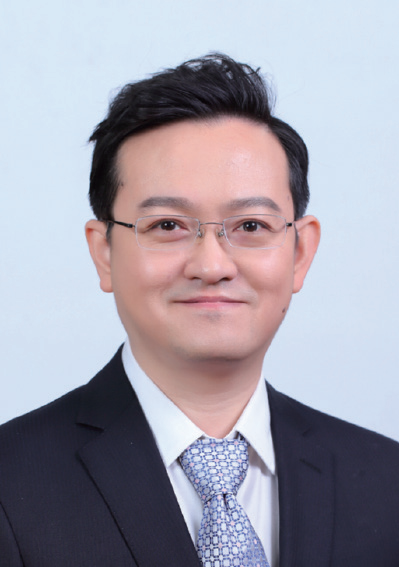Yang Bai, Yanjing Su, Lijie Qiao
Beijing Advanced Innovation Center for Materials Genome Engineering, Institute for Advanced Material
and Technology, University of Science and Technology Beijing, Beijing 100083, China
EXTENDED ABSTRACT: Functional ceramics are key materials in modern high-tech fields, such as electronic information, aerospace, m山tary industry, precision instruments and so on. However, functional ceramics always have many components, complex preparation process, many performance parameters and long testing time, which makes the current research face technical bottlenecks such as large search space of composition and process, long time of preparation and characterization, poor data consistency and repeatab山ty, and low utilization efficiency of data, which greatly reduces the research and development (R&D) efficiency of new materials. In recent years, the emergent materials genetic engineering (MGE) has applied modem computing science, data technology and experimental methods to the field of materials science, accelerating material design and opt皿ization, which forms a new paradigm of material R&D. If the data如ven new paradigm is applied to functional ceramics, it can significantly improve the R&D efficiency, reduce the cost, and trigger the technological revolution of functional ceramics. Recently, the autonomous experimentation with the deep integration of material big data technology and high-throughput experimental technology has become a new trend in the development of MGE, promoting the development of high-throughput experiment to the direction of automation, autonomy and intelligence. Directed by the artificial intelligence technology for the whole process, the autonomous experiment system uses industrial robots to control various high-throughput equipment for preparation and characterization, and adopts machine learning methods to analyze material composition, process parameters and property data to make a cyclic iterative experiment scheme, so as to autonomously complete the experiment process and finally screen out high-performance target materials. Autonomous experimental systems integrating artificial intelligence and automation technology increase data generation speed, improve data quality, and enhance utilization efficiency of data to significantly accelerate material development efficiency. Current autonomous experimental systems mainly focus on materials by liquid phase chemical synthesis, while large amount of materials by solidstate preparation, represented by ceramics, is still a challenge because of complex operation, many steps and long process. To fill in the blank of autonomous experimentation for ceramics, we develops autonomous experimental systems special for functional ceramics. A series of automation technologies and equipment suitable for autonomous experiments are developed for the whole process of functional ceramics preparation, and the whole high-throughput process is linked by industrial robots. At the same time, the machine learning strategy for autonomous feedback combined with domain knowledge is developed and interconnected with the high-throughput preparation and characterization platforms, so as to form an autonomous experimental intelligent R&D platform.
Keywords: Autonomous experiment system; High throughput experiment; Functional ceramics

Prof. Yang Bai is a Professor in the Institute for Advanced Materials and Technology at University of Science and Technology Beijing (China). He is the director of Beijing Key Laboratory of Materials Genetic Engineering, and a chief scientist of National Key Research and Development Progrant. He received his B.S. and Ph.D. in School of Materials Science and Engineering from Tsinghua University, and then worked in University of Science and Technology Beijing since his graduation. His research interests include material genetic engineering, metamaterials in various physical fields, ferroelectric cerantics, etc. He serves as PI for 1 project of National Key Research and Development Program and 8 projects of National Natural Science Foundation of China. He has published nearly 200 SCI-indexed papers, published 5 English/Chinese academic monographs, and obtained 10 authorized patents. In 2015, he was voted as the Best Scientific Research Workers by the Chinese Association ofY01tng Scientists and Technologists. In 2019, he won the 13th Youth Science and Technology Award of Chinese Ceraniic Society. Also he won one first prize and one second prize of Natural Science Award of Ministry of Education. Currently, he is executive director of Metamaterials Society of Chinese Materials Research Society, deputy secretary general of Electronic Components Society of Chinese Institute of Electronics, fellow of Advanced Ceramics Society of Chinese Ceramic Society, and fellow of Functional Materials Society of China Instrument and Control Society. and also serves as the editor member of 5 English SCI journals, including Science China: Technological Sciences, Journal of Advanced Ceraniics, International Journal of Minerals, Metallury and Materials, and 2 Chinese journals.